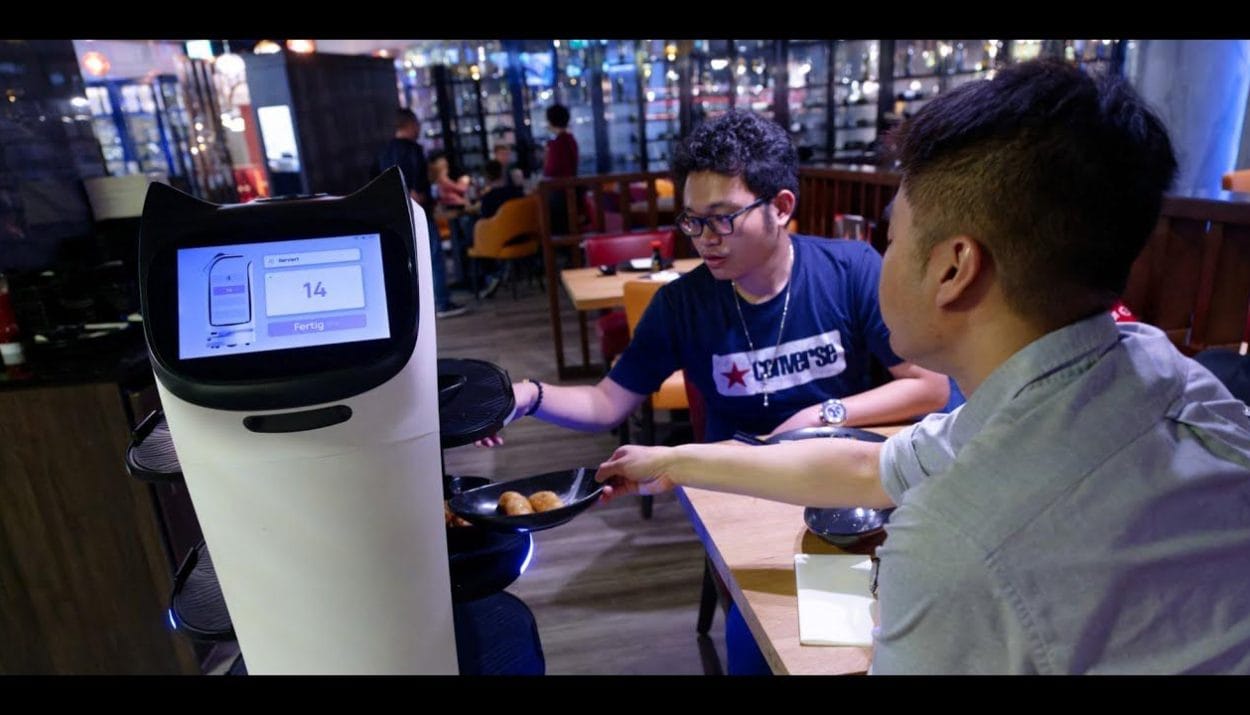In an upscale suburb of Nairobi, an innovative dining experience is drawing crowds: the Robot Café, the first of its kind in East Africa, where robots assist the staff
The robots currently serving in this cutting-edge restaurant are named Nadia and Claire. Since its opening two months ago, the café has become a local attraction thanks to these mechanical assistants who move between tables to deliver orders
When we are really busy, especially on weekends, the dining area can be filled with ten human waiters and three robots. These robots are like colleagues: they have names, help us with the service, and their performance is flawless," explains Gladys Guda, a waitress at the Robot Café.
Customers access the menu by scanning a QR code on their table and place their orders online. Once the dishes are ready, a human waiter places them on a robot's tray, which then delivers them to the table after entering a few commands on an iPad. The robots are recharged overnight and monitored through a specialized control center
The introduction of robots has raised concerns about job loss, especially in a key hospitality sector for Kenya's economy
John Kariuki, the manager of the Robot Café, tries to reassure
At no point can robots perform all the services and tasks of the restaurant without human intervention," he clarifies. "Robots are actually too expensive to acquire on a large scale. But we believe that customers deserve to access the technology available in developed countries. Therefore, we have integrated robots mainly for entertainment, as that is what our customers are looking for.
Although the Robot Café initiative could set a new trend in Kenya, Edith Ojwang, an independent consultant in the hospitality industry, highlights the diversity of service needs
The hospitality industry is very diverse. We have customers who prefer robotic service and complete automation, while others value human contact. Therefore, it is not a total threat to the human workforce due to the variety of preferences in hospitality," she concludes
Article source: africanews






